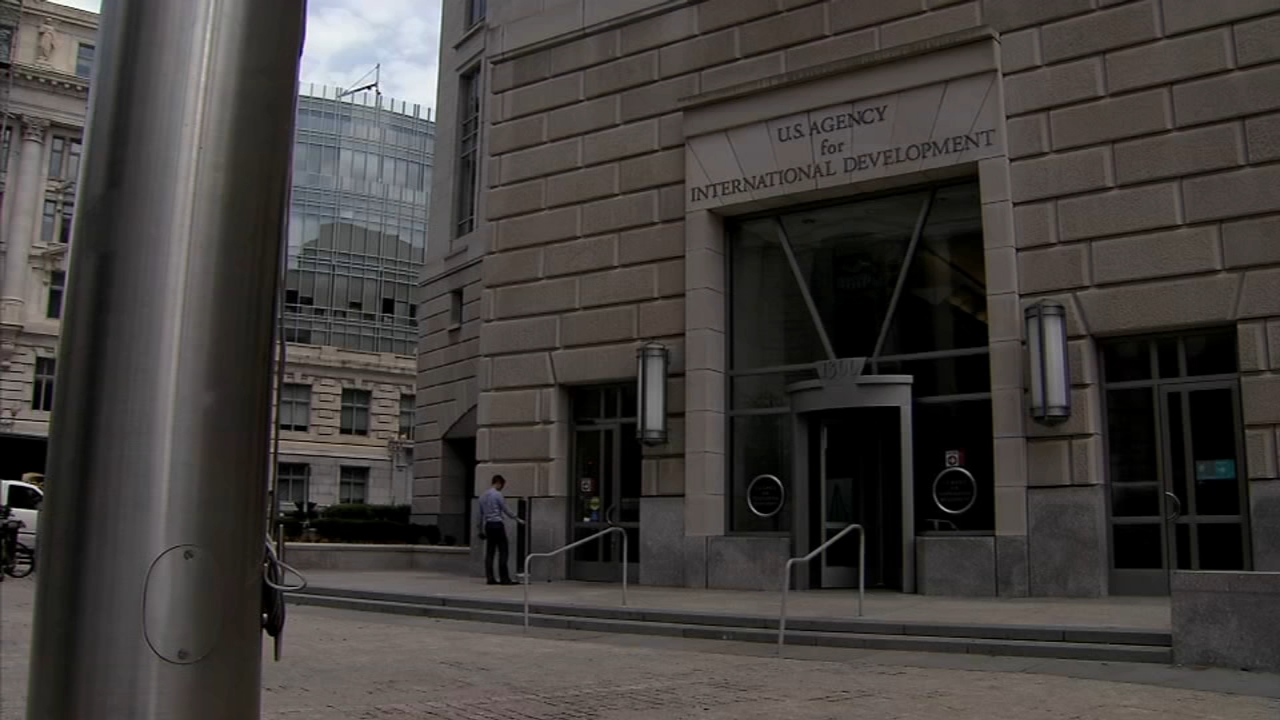Kim Jong Un leaves Russia after summit with Vladimir Putin

VLADIVOSTOK, Russia -- North Korea's leader Kim Jong Un departed the Russian city of Vladivostok on Friday, a day after a summit with Russia's president Vladimir Putin.
Kim boarded his armored train at Vladivostok's train station, where he was seen off by a small Russian military parade. He watched as the troops marched past and the band played the North Korean and Russian national anthems.
Earlier in the day Kim laid a wreath at a Soviet-era World War II memorial, accompanied again by a small parade. There was confusion when the event was abruptly canceled 30 minutes before its scheduled start-time, after police had already closed off many roads. Organizers rolled up the red carpet and took it away, but then the event was suddenly announced as back on again and it proceeded as planned, avoiding a potential snub.
The focal point of Kim's three-day visit was his summit with Putin, the first time the two leaders had met. Putin hosted Kim on a university campus on Russky Island located just off the coast of Vladivostok, a port in Russia's far east, about 4,000 miles from Moscow.
The meeting attracted considerable international attention amid the continuing efforts by the Trump administration to compel North Korea to give up its nuclear weapons through President Donald Trump's own summits with Kim.
As Kim left Vladivostok, how much he had gained was an open question.
The summit involved elaborate ceremonies of friendship, with Kim presenting Putin with a golden sword and the two toasting with champagne. There was little concrete detail, however, on what the two had discussed during their roughly two hours of talks, and experts said the event had been more about diplomatic symbolism than substance.
Even before the summit, experts had cautioned that the summit would likely be more style than substance, simply because there are considerable limits to what either side can give to the other.
With U.S.-North Korean talks stalled following Kim's unsuccessful summit in Hanoi with Trump in February, North Korea is seeking to bolster its international position and to show it has allies. Kim is also seeking ways to lift pressure from international sanctions and is hoping for economic help, but Russia is unwilling to offer much of either.
Meanwhile, for Russia a meeting with Kim is useful but far from essential.
"I think [Kim] needed this trip to Russia more than Russia did," said Artyom Lukin, an international relations scholar at the Far Eastern Federal University, where the summit was held on Thursday.
"For Russia, it was just a question of international prestige," said Lukin. "Prestige is important but not vital."
Russia's own interests in North Korea are complex, shaped partly by their shared Communist past but driven more substantially by present-day dynamics. Moscow has for years been involved in efforts to have North Korea give up its nuclear arms, and has joined the U.S. in imposing United Nations sanctions on Pyongyang.
But at the same time, Russia has presented itself as supportive of North Korea and has criticized the U.S. for being overly aggressive and inflexible, believing Washington's goal of total and rapid denuclearization is not realistic.
At the summit, Putin told reporters that he believed North Korea needs serious security guarantees if it is to give up its nuclear capabilities, and that Russia was ready to play a role in mediating the stand-off. But he gave no specifics.
Dmitry Trenin, the well-connected director of the Carnegie Moscow Center, wrote on Twitter that Russia was communicating to the U.S. that "others need to be engaged" to help resolve the conflict.
The Russian diplomatic moves came as Trump was on the defensive this week over reports that the U.S. paid money to North Korea to release Otto Warmbier, the American man who died after being held by North Korea for two years.
Trump on Friday angrily tweeted that "No money was paid to North Korea for Otto Warmbier, not two Million Dollars, not anything else," and he lashed out at the Obama administration's handling of hostages.






